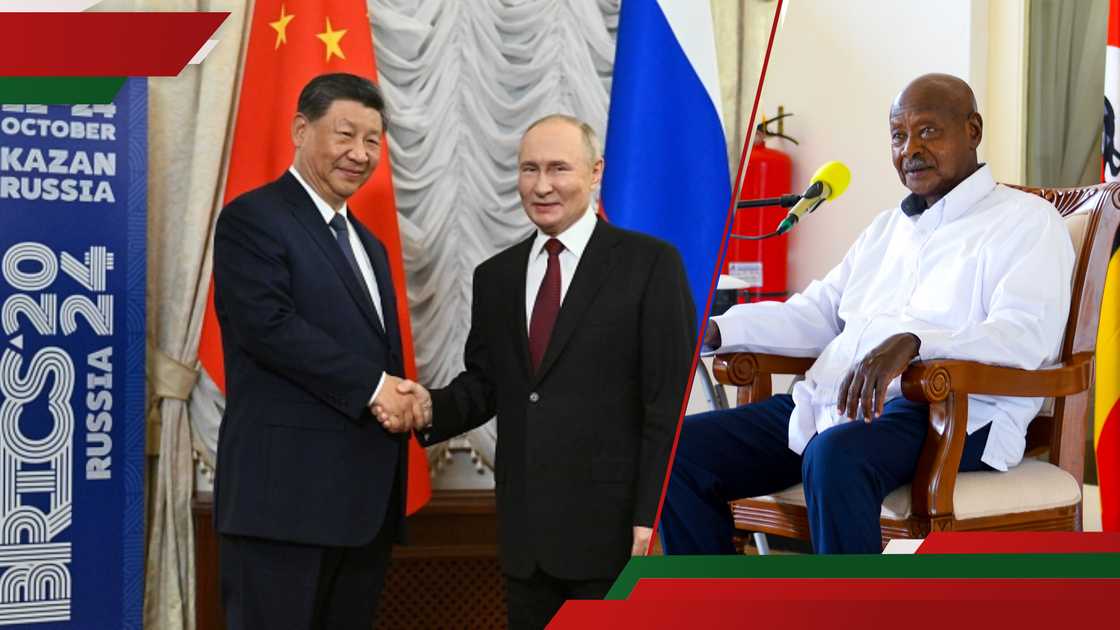-
Uganda has officially become a member of BRICS as one of thirteen new partner countries, indicating a considerable change in its global trade and investment approach
-
Uganda’s membership in the BRICS group demonstrates Africa’s growing influence in global economic partnerships
-
Uganda’s economy, heavily reliant on agriculture and natural resources, is poised to benefit from increased foreign investment and trade.
Elijah Ntongai, a journalist with .co.ke, possesses over three years of experience in researching and reporting on financial, business, and technological issues, both locally and on a global scale, offering valuable insights into Kenyan and international developments.
Uganda has become an official member of the BRICS group, consisting of Brazil, Russia, India, China, and South Africa, amongst 13 new partner countries.

This represents a substantial change in Uganda’s approach to international trade and investment.
By joining BRICS, Uganda seeks to enhance its economic cooperation with several of the world’s largest emerging markets, and gain from the alliance’s focus on alternative trade and financial systems.
This expansion is in line with BRICS’ long-term plan to challenge the dominance of Western-centric institutions and promote a more balanced global economic order.
Additionally, the announcement comes following a tumultuous relationship between the Ugandan government and various Western governments concerning Uganda’s stance on LGBTQ rights.
Algeria, Indonesia, Turkey, Nigeria, and Vietnam have joined the group as part of its expansion to promote multilateral economic cooperation.
Subscribe to watch newly uploaded videos.
What benefits does Uganda stand to gain by being part of the BRICS alliance?
Uganda’s membership in the BRICS bloc presents opportunities for diversifying its trade links and tapping into the vast markets that exist within the alliance.
The country’s economy heavily relies on agriculture and the exploitation of its natural resources and is poised to benefit from increased foreign investment and trade in key industries including oil, minerals, coffee, and tea.
The initiative is also in line with Uganda’s objectives to minimize its reliance on traditional Western markets by forging collaborations that result in mutually beneficial economic advantages.
The joint venture provides access to alternative financing options, including the New Development Bank, as well as opportunities for collaboration on infrastructure projects, digital transformation, and energy development initiatives.
Uganda’s admission to BRICS highlights Africa’s growing influence in forming global economic partnerships. Britain received only one African member, South Africa, in BRICS, following the bloc’s expansion in 2023, Egypt and Ethiopia joined, and now Algeria, Nigeria, and Uganda are part of the economic association.





